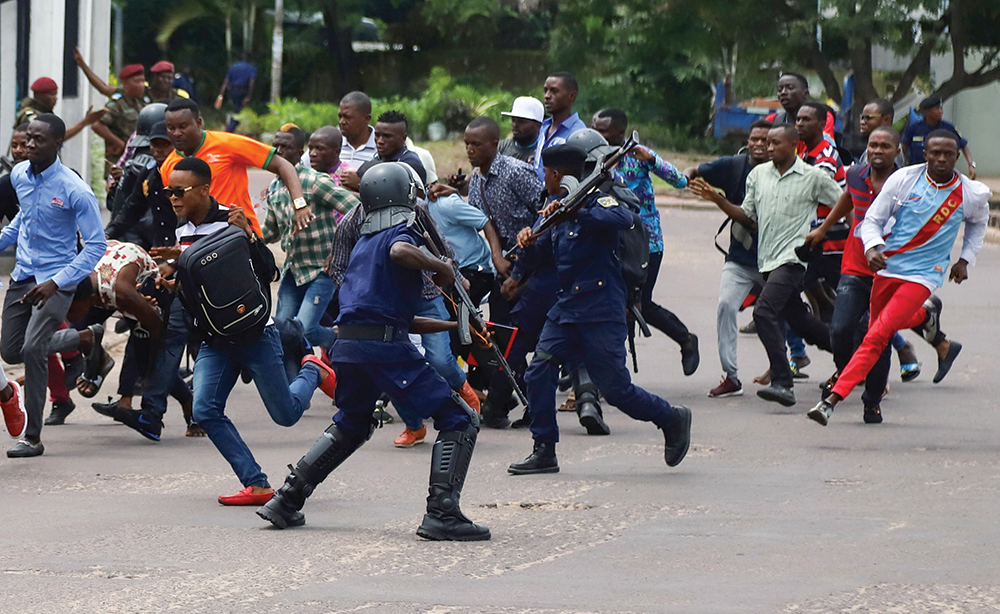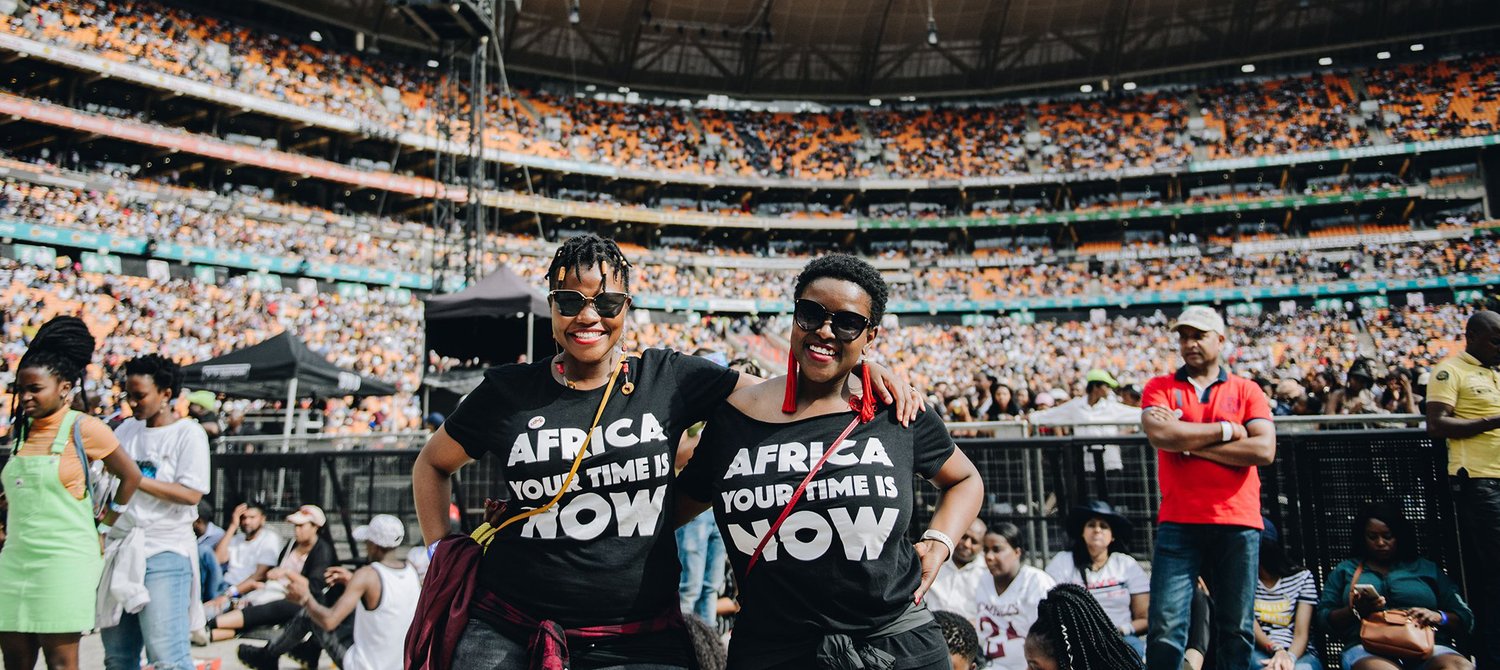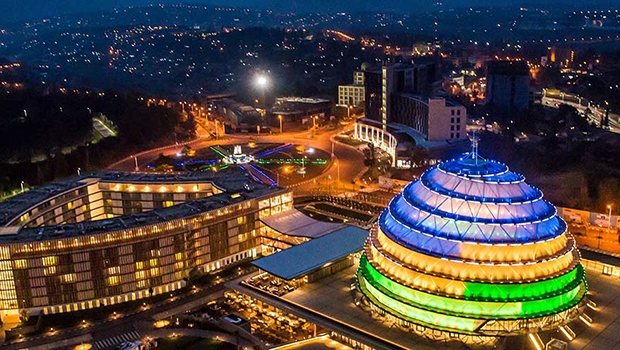Is The African Union Doing Enough To End The Crisis In Countries Like DR Congo, Cameroon And Nigeria?


Africans always accuse the West of not doing enough for the continent. However, are Africans doing enough for the continent? If African leaders turn a deaf ear to the problems of the continent, what is Africa’s moral right in crucifying the West for doing the same? These are some of the questions swirling around our heads as we examine the role of the African Union (AU) in Africa.
According to their official website, the African Union “is a continental body consisting of the 55 member states that make up the countries of the African Continent.” The official launch of the organization was in 2002. Consequently, it replaced the Organization of African Unity (OAU, 1963-1999). Some of the aims of the African Union include;
- Achieve greater unity and solidarity between African countries and their people
- Defend the sovereignty, territorial integrity, and independence of its Member States;
- Accelerate the political and socio-economic integration of the continent;
- Encourage international cooperation
- Promote peace, security, and stability on the continent;
- Promote and protect human and peoples’ rights in accordance with the African Charter on Human and Peoples’ Rights and other relevant human rights instruments;
- Establish the necessary conditions which enable the continent to play its rightful role in the global economy and in international negotiations;
- Promote sustainable development at the economic, social, and cultural levels as well as the integration of African economies;
The list goes on…
African Union, the journey so far

It is now eighteen years since the establishment of the African Union. How well can we say the objectives have been met? One of the key objectives as stated above is to ‘Promote peace, security, and stability on the continent. However, across the African continent, violence and instability appear to be flourishing. Kelechi Kalu raised an important question in this regard. Kalu said, ‘Does the AU have the capability to protect citizens against government violence?’
Obviously, some African governments are complicit in the violence rocking their nation. For example, the instability currently witnessed in Cameroon can be traced back to government insensitivity. The Boko Haram insurgency in Nigeria is another glaring example. More recently, peaceful protesters in Nigeria were shot by government troops. Consequently, this resulted in a violent protest that swept through parts of the country for days. In all of these, the African Union appears to be mute.
It is important to mention that the Constitutive Act of the African Union empowers states to intervene where countries fail to protect their citizens from internal conflicts. Bearing this in mind, we wonder how long it will take AU member states to intervene in the crisis in Nigeria, DR Congo, and Cameroon. Perhaps, the AU inherited the ‘non-interference’ rule of its predecessor. One thing is clear, the AU is yet to figure out how to effectively and collectively mobilize and deploy resources for the purpose of conflict management or prevention.
What should be African Union’s priority to end violence across the continent?

In 2019, the International Crisis Group (ICG) published a report titled ‘Eight priorities for the African Union in 2019’. According to ICG, the union is facing old and new conflicts. Interestingly, Cameroon and DRC were some of the pressing conflicts on ICG’s list. Also, Nigeria was on the list of ‘Ten conflicts to watch’. Furthermore, ICG is calling on the AU to push ahead with institutional reforms.
Cameroon

Since the escalation of the conflict in 2017, at least 3000 civilians have died. Also, about 30,000 have fled the country to neighboring Nigeria with over 437,000 internally displaced in Cameroon. Rather than address the Anglophone concerns, the government has used a heavy handed approach in their attempt to crush the insurgents. This approach has only stretched the conflict out with the number of casualties rising each day.
Despite the high casualties, the African Union appears to be neutral on the matter. Sadly, Cameroon is not on AU’s Peace and Security Council (PSC) agenda. Rather than conducting an independent inquiry, the Council accepted the government’s classification of the crisis as an internal matter.
Could the AU do more to help Cameroon find peace? There are measures the organization could have taken and could still take. For example, the AU could facilitate peace talks, pressure the government to adopt confidence-building measures. To further ensure compliance, the AU member states could impose sanctions on the Cameroonian government and separatists hindering peace to pressure them to move in the right direction.
Democratic Republic of Congo

In the Democratic Republic of Congo, armed groups continue to attack and kill people. According to UN High Commissioner for Refugees (UNHCR), over one million people have been displaced in eastern DRC. The attacks are mainly in Ituri province, South Kivu province, and North Kivu province. Perhaps, the AU is a toothless dog that can only bark but not bite.
Events trailing the emergence of Félix Tshisekedi asks questions on the power of the African Union. Mr. Tshisekedi appears to have the backing of the former president. Consequently, the election was rigged in his favor against Martin Fayulu who according to the Congolese Catholic Church is the rightful winner. The AU initially raised doubts about the electoral results but later signaled a willingness to work with the new government.
The events that played out may suggest subtle disunity in AU’s organization. Nevertheless, AU leaders could encourage Mr. Tshisekedi to show independence from the former regime. Also, Tshisekedi should extend a hand of friendship to Fayulu and his supporters. PSC should also keep DRC on its agenda because of the fragile peace in the east.
Nigeria

From political to religious tensions and fighting insurgency, peace continues to depart the country. Hundreds of thousands of Nigerians continue to live in fear in the northeastern part of the country. Unfortunately, the government seems to be oblivious on how to put an end to the violence. Much recently, there is a growing call by the youths for the government to shut down a police unit in the country, Special Anti-Robbery Squad (SARS).
There seems to be a widening distrust between the citizens and the government. The agitation by the oil-rich Niger Delta indigenes is on the rise again. However, the greatest threat in the country remains the Boko Haram insurgents. There are many ways the AU can intervene. Perhaps, if a peace talk fails to materialize, the AU can think of mobilizing forces to help the Nigerian army fight the insurgents once and for all.
Generally, the African Union needs to do more to live up to its aims and objectives. Perhaps, the major setback the union is facing is financial. Sadly, 73 percent of AU’s annual budget depends on foreign aid. Obviously, Africa cannot go far in its pursuit for peace without first tackling economic woes.







Responses